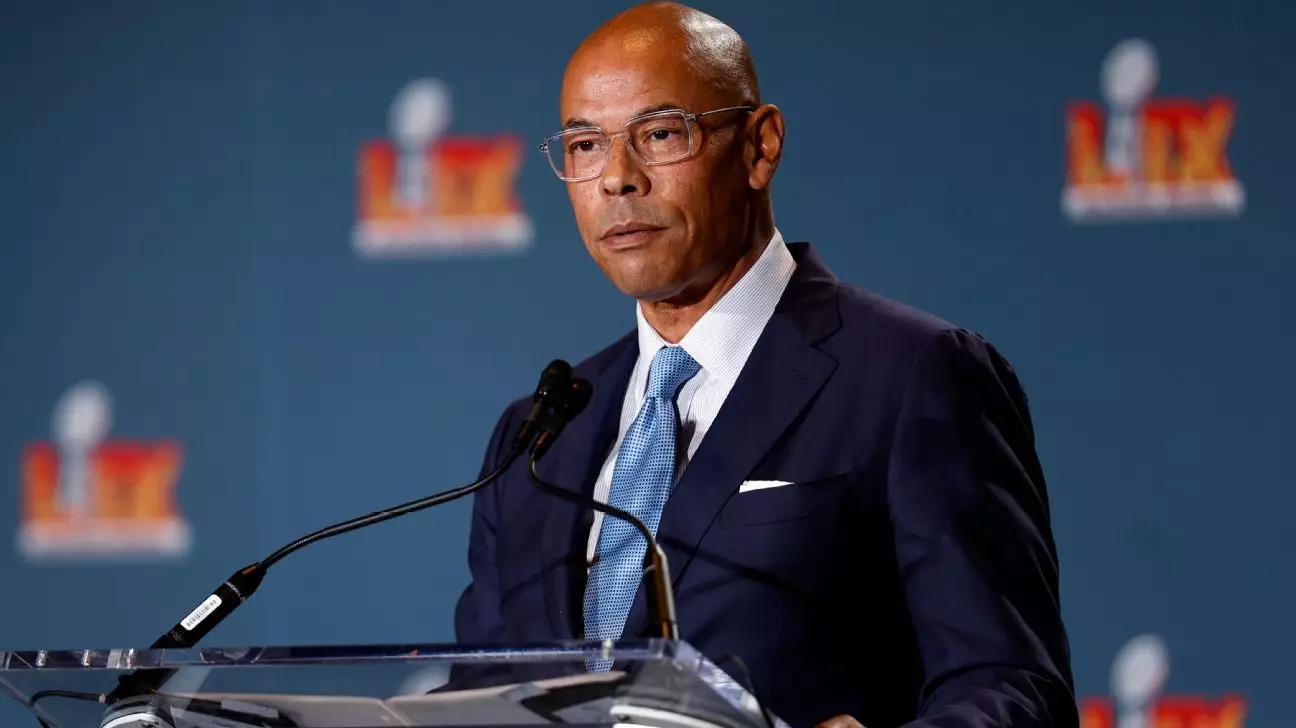The NFL Players Association (NFLPA) finds itself at a pivotal crossroads, with questions swirling around its leadership and internal transparency. At the heart of this controversy is Lloyd Howell Jr., the union’s executive director, whose dual roles and decision-making processes are now under intense examination. While the NFLPA’s executive committee publicly defends Howell, their unwavering support may mask deeper issues of accountability and internal discord. The situation underscores the importance of transparent leadership—without which even the most influential organizations risk erosion of trust from their constituents.
The NFLPA’s firm stance against public accusations and rumors appears to be an attempt to project unity. Yet, their insistence that no requests for Howell’s resignation have been made raises concerns about the potential disconnect between leadership and union members. When doubts arise about a figure holding such power, silence can be deafening. The union’s declaration of a “deliberate process” to assess issues hints at internal ambiguity rather than clarity, leaving players and fans to wonder whether genuine accountability or mere political positioning is at play.
Conflicts of Interest and Ethical Ambiguities
The controversy surrounding Howell’s connection to Carlyle Group dramatically complicates his leadership. Working as a paid, part-time consultant for a private equity firm now seeking NFL franchise ownership presents a conspicuous conflict of interest—one that raises fundamental questions about integrity. Such dual roles, often perceived as a breach of fiduciary duty, threaten to undermine the credibility of the NFLPA’s commitment to representing player interests.
Despite Howell’s claims of “due diligence,” the perception of potential bias or undue influence persists. Union stakeholders are right to scrutinize whether this affiliation could influence negotiations, player protections, or decisions that impact the collective bargaining process. Ethical transparency is crucial—not just for Howell, but for the union’s reputation as an advocate for players’ rights. Failure to address these issues openly risks fueling distrust and delegitimizing the union’s authority among its members.
Secrecy, Confidentiality, and the Power Dynamics
Behind the scenes, the NFLPA’s handling of sensitive information adds fuel to the fire. The confidentiality agreement that concealed the arbitration ruling on league collusion and guaranteed player compensation has sparked criticism of a culture that prefers secrecy over accountability. When critical findings are hidden from the very players they affect, it fosters suspicion of manipulation and preferential treatment within the organization.
The arbitration decision, which found that league officials motivated team owners to reduce player guarantees but stopped short of proving collusion, should be a matter of public record for bargaining transparency. The fact that Howell limited the dissemination of this information and that union members were kept in the dark suggests a leadership style more inclined toward concealment than openness. Transparency builds trust; secrecy breeds doubt—particularly when union members feel sidelined from decisions that influence their livelihoods.
The Union’s Response and the Fight for Leadership Legitimacy
In response to mounting concerns, the recent hiring of legal expert Ronald C. Machen signifies an acknowledgment of the seriousness of the issues. This move suggests that the NFLPA is aware of potential vulnerabilities in its leadership and recognizes the need for rigorous oversight. The formation of a special committee to review Howell’s conduct reflects a desire to restore integrity but also signals internal conflict.
The NFLPA’s pursuit of an appeal against the arbitration ruling demonstrates a fierce commitment to defending players’ interests. However, such legal battles often clash with the broader goal of fostering trust and unity. If leadership appears more focused on legal and bureaucratic defenses rather than genuine introspection, it risks alienating the very players it claims to serve. Effective leadership in this context must balance strategic defense with humility and accountability—an area where the NFLPA currently faces immense challenge.
The Path Forward: Rebuilding Trust in a Divided Arena
This saga presents an extraordinary test of leadership within the NFLPA. The union’s credibility hinges on its capacity to demonstrate transparency, uphold ethical standards, and genuinely prioritize players’ interests above internal politics. The current turmoil may serve as a catalyst for meaningful reform, but only if the union embraces openness and internal accountability.
Ultimately, the NFLPA’s future depends on whether it can reconcile the need for internal unity with the imperative of public trust. Leadership that shies away from uncomfortable truths risks losing legitimacy altogether. For the union, the core challenge is to navigate this crisis not merely as a legal or political matter but as an opportunity to reaffirm its commitment to integrity, fairness, and the collective good of the players it was created to serve.

